Misrepresentation and False Claims: Albion Fined False Made In USA Claims
The recent legal repercussions faced by Albion Engineering Corp. for false ‘Made in USA’ claims highlight a critical aspect of consumer trust and market integrity. With a substantial $2 million fine imposed by the U.S. District Court, the case reveals the gravity of misleading product origin declarations.
As the lawsuit unfolds, it prompts reflection on the broader implications of deceptive marketing practices and their impact on businesses and consumers.
Stay tuned to discover how this legal action is a cautionary tale for companies managing the delicate balance between competitiveness and ethical transparency in the marketplace.
Key Takeaways
- Albion fined $2 million for false ‘Made in USA’ claims.
- Misleading customers with inaccurate product origin information.
- Market dynamics influenced by deceptive country-of-origin labeling.
- The court stresses the importance of truthful product origin claims.
Legal Consequences and Ruling Details
Albion Engineering Corp. faced legal ramifications and was ordered to pay a $2 million fine for misleading ‘Made in USA’ claims after the U.S. District Court ruling for the District of New Jersey on February 29, 2024.
The court found the company guilty of deceptive marketing practices, including mismarking and false advertising. As part of the ruling, Albion was mandated to comply with country-of-origin marking requirements, and distributors were instructed to display the judge’s opinion at sales locations prominently.
This case serves as a reminder of the consequences of deceptive marketing and the importance of accurate product representation to consumers. Transparency and truthfulness in labeling and advertising are essential to maintaining trust and integrity in the marketplace.
Lawsuit Initiation and Allegations
Initiated in May 2012 by Newborn Bros. Company, the lawsuit against Albion Engineering Corp. alleged violations of the Lanham Act and unfair competition. Court findings revealed that Albion’s statements regarding the origin of their products were misleading, particularly the false ‘Made in America’ claims. The lawsuit highlighted how certificates of origin, website statements, and product markings were deceptive.
It was discovered that Albion had misrepresented its products as American-made when they were imported, giving it a competitive advantage. Testimony showed that some customers favored Albion due to these false claims, impacting market dynamics. The court emphasized the importance of accurate country-of-origin claims and stressed the need for transparency in labeling and advertising practices.
Misrepresentation and False Claims
Following the revelations of deceptive practices surrounding product origin claims and competitive advantages in the market, the focus now shifts to the ramifications of misrepresentation and false claims within the industry. Misleading customers through false ‘Made in USA’ claims violates trust and tarnishes brand reputation.
Albion’s mislabeling led to an unfair competitive advantage, impacting customer trust in its products’ authenticity. The importance of accurate country-of-origin claims cannot be understated, as they directly influence customer perceptions and purchasing decisions. Inaccurate claims erode customer trust and can have severe consequences for brand reputation.
Businesses must prioritize transparency in labeling and advertising to maintain customer trust and uphold brand reputation.
Market Impact and Customer Responses
The deceptive marketing tactics employed by Albion Engineering Corp. have significantly impacted the market landscape and elicited varied customer responses. This situation has led to shifts in customer loyalty and market share. Here are four key points to ponder:
- Customer Loyalty: Some customers remained loyal to Albion despite the false ‘Made in USA’ claims, showcasing the power of brand loyalty.
- Market Share: Competitors like Newborn Bros. Company saw an increase in sales after Albion corrected its origin markings, indicating a potential shift in market share.
- Consumer Preferences: Customers expressed preferences for American-made products and rejected non-U.S. alternatives.
- Trust and Transparency: The incident highlighted the importance of trust and transparency in labeling and advertising practices.
Business Strategy and Competitive Dynamics
Moving from the market impact of deceptive practices, examining Business Strategy and Competitive Dynamics sheds light on Albion Engineering Corp.’s approach amidst the legal consequences. Despite being imported, Albion’s misrepresentation of products as American-made led to a competitive advantage, as some customers favored U.S.-origin products. This strategic move influenced customer preferences, with some clients showing a preference for American-made goods and rejecting non-U.S. products.
Despite efforts to rectify false claims by placing Taiwan stickers on imported products, Albion’s competitive dynamics impacted customer purchasing decisions. The case highlights the importance of accurate origin claims for maintaining customer trust and emphasizes how truthful product origin information can shape market behavior and customer perceptions. It also underscores the significance of transparency in labeling and advertising.
Significance of Accurate Origin Claims
Emphasizing the accuracy of origin claims is paramount in maintaining consumer trust and fostering transparent market practices.
Importance of Accurate Origin Claims:
- Customer Trust: Accurate origin claims build consumer trust, ensuring they make informed purchasing decisions.
- Branding Integrity: Transparent origin claims uphold the integrity of a brand, reinforcing credibility and loyalty.
- Legal Compliance: Adhering to country-of-origin regulations prevents legal repercussions and financial penalties.
- Market Reputation: Providing truthful information about product origins enhances a company’s reputation and differentiates it positively.
Customer Perceptions and Preferences
Accurate disclosure of product origin is pivotal in shaping customer perceptions and influencing their preferences in the marketplace. A company’s transparency regarding where its products are made is often tied to customer loyalty.
Market trends indicate a growing preference for products labeled ‘Made in USA’, with some customers even refusing non-American options from competitors. Albion’s misrepresentation of its products as American-made despite being imported significantly impacted customer reactions.
The shift in customer preferences towards American-made goods showcases the importance of truthful product origin information. This case highlights how competitive dynamics can influence customer perceptions and purchasing decisions, emphasizing the need for businesses to be transparent in their labeling and advertising practices.
Importance of Transparency in Advertising
Ensuring transparency in advertising practices is essential for businesses to build trust with consumers and uphold ethical standards in the marketplace.
- Customer Trust: Transparent advertising fosters trust by providing accurate information to consumers.
- Brand Reputation: Upholding transparency enhances brand reputation and credibility in customers’ eyes.
- Ethical Standards: Transparent advertising aligns with ethical principles, showing respect for consumer intelligence.
- Long-Term Success: Maintaining transparency in advertising leads to sustainable customer relationships and long-term business success.
The significance of accurate country-of-origin declarations cannot be understated in the aftermath of the legal ruling against Albion Engineering Corp.. This case is a cautionary tale, highlighting the repercussions of deceptive marketing practices.
As businesses endeavor to maintain customer trust and integrity, labeling and advertising transparency are paramount.
The shadow of false ‘Made in USA’ claims looms, highlighting the importance of ethical standards and regulatory compliance.

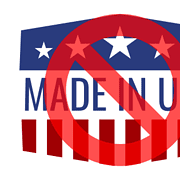 © Copyright 2010-2024 | The Made in America Movement
© Copyright 2010-2024 | The Made in America Movement
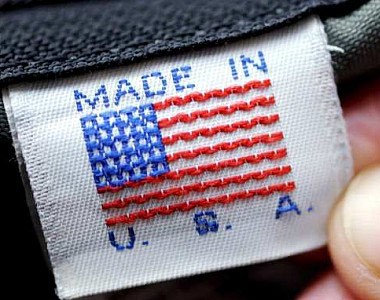

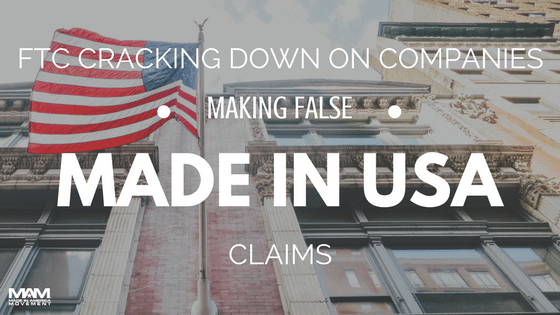
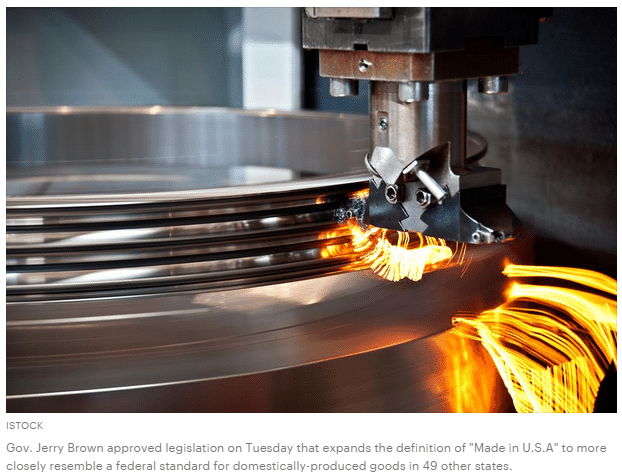
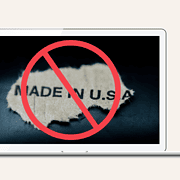

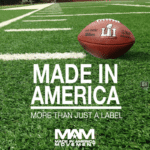

Serves them right. I am soooo very picky buying stuff that is NOT made in China